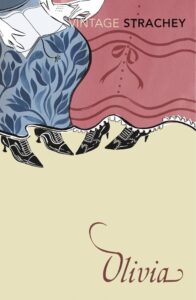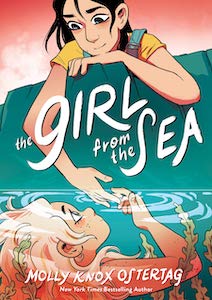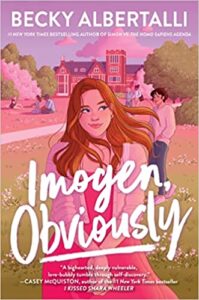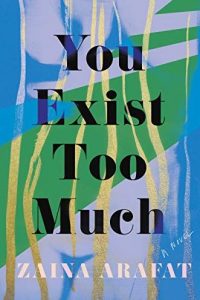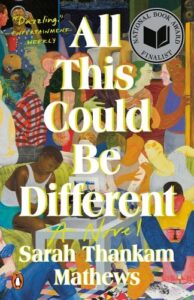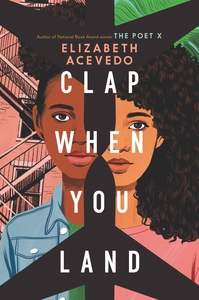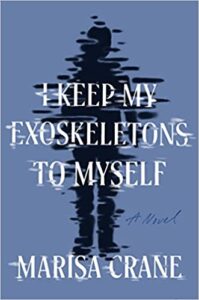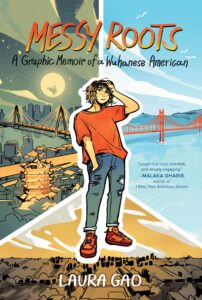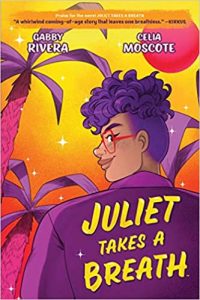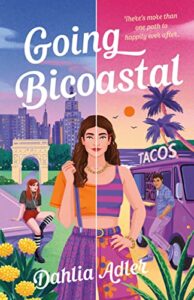Buy this from Bookshop.org to support local bookstores and the Lesbrary!
I had found out about Olivia by Dorothy Strachey through the 1951 film of the same name by Jacqueline Audry. MUBI describes the film quite beautifully: “Dreamy laces, soft lighting, and longing glances induce an erotic headiness that renders this landmark lesbian love story a transgressive masterpiece.” I at once started watching the film and loved its atmosphere that was at the same time simple and intense, funny and reflective. The book, on the other hand, was not as funny and simple as the movie was, because of which I loved it even more.
I finally got my hands on the 100-page book with a pretty cover consisting of two women wearing gowns, with their hands slightly touching. I could not quite grasp the exact time-period of the novel, but I presume it’s during the late 1800s, since the novel is partly autobiographical and Strachey was born in 1865.
The novel is narrated by sixteen-year-old Olivia, who is sent to a finishing school in France. I viewed this novel primarily as a coming-of-age story. Olivia is at an age where one continuously discovers more about oneself and the world. The book depicts the process of this discovery through the clandestine conversions between Olivia and her friend about agnosticism in a strict Wesleyan school, and later through Olivia’s discovery about her love and admiration for her teacher, Mlle Julie, in her finishing school, Les Avons.
I love how passionate and keen the character, Olivia is. The book lets us feel the intensity of Olivia’s emotions ourselves. It has lots of descriptions of theatres and art galleries in Paris, all told through Olivia’s perspective. It lets us feel the excitement of falling in love, as well as the heartbreak that follows when Olivia realises that her love for Mlle Julie has no future.
What I found interesting about this novel was the coexistence of freedom and repression. In the introduction, Strachey writes, “And yet I had an uneasy feeling that, if not a joke, it [her love for her teacher] was something to be ashamed of, something to hide desperately.” Reading some of the descriptions of Les Avons, one would hardly believe that someone could feel so restricted while being allowed to run wildly in the forest full of flowers that surrounded the school. Perhaps this shows that there is more beneath the surface—that a seemingly idyllic setting can foster repression when it comes to certain matters. The relationship between the two heads of Les Avons, Mlle Julie and Mlle Cara, is very interesting, and it is suggested that their relationship was not purely platonic.
Olivia’s morals and her feelings for Mlle Julie contradict each other. She believes that her feelings are shameful: “Was I really capable of vice? Yes, I felt it within me, in this hatred, in this horror, in this confusion itself.” Then again, she thinks, “But love was no vice.” This constant argument with oneself is interesting to observe because we all go through a phase where we realise that our morals and feelings contradict each other and it is up to us to decide which of them to act on. At the same time, Olivia’s thoughts are upsetting to observe, as she was being made to feel guilty when she had done nothing wrong. I think this feeling of guilt is one most of us can relate to, because society often makes us feel guilty for something that literally causes no harm to anyone.
Feelings take precedence over events in Olivia. All the seemingly insignificant events evoke significant emotions, which eventually lead to the “final catastrophe”, as Strachey calls it. The final events of the book are heartbreaking, and are enough to bring tears to the eyes of people as sensitive as I am. In short, I love this book and I don’t know why it isn’t more popular.
This has been a guest review by “Mysterious”. You can find out more about guest reviews at the Lesbrary on the About page.

